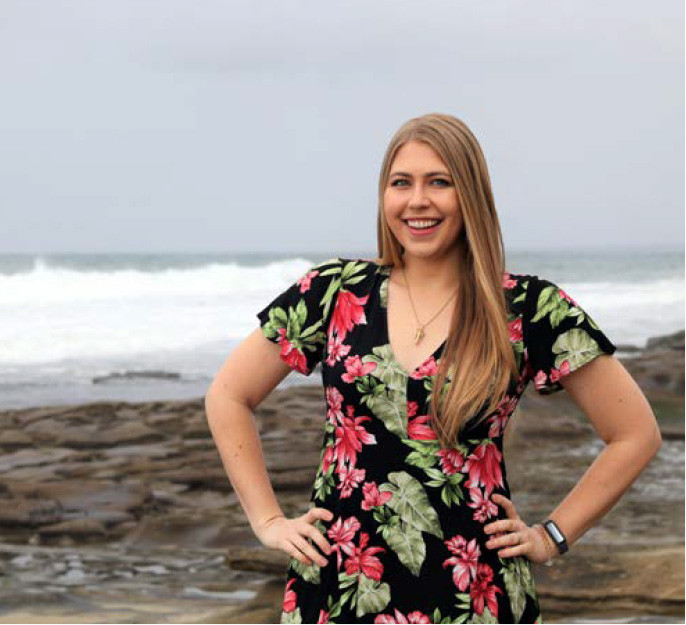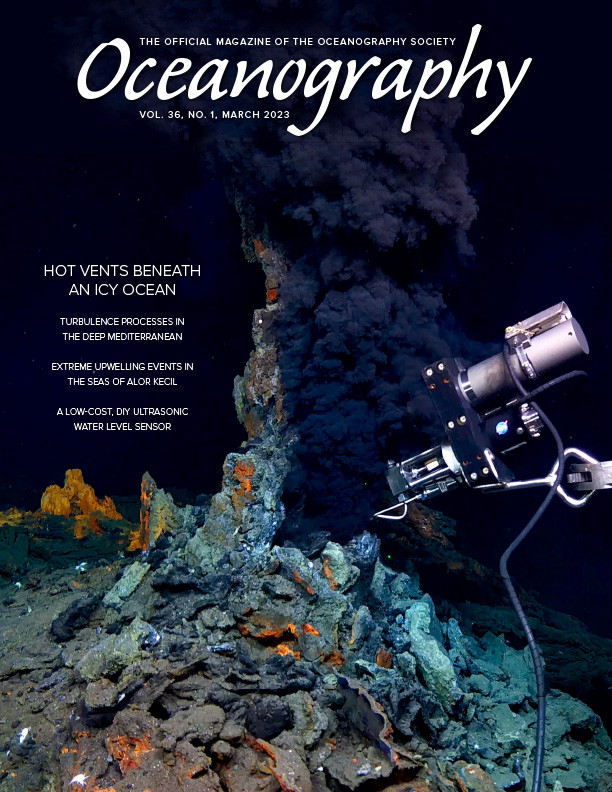Full Text
 |
Kaitlyn Lowder, Program Manager, The Ocean Foundation
Degree: When, where, what, and what in?
In 2019, I finished my PhD in marine biology with a specialization in interdisciplinary environmental research from the Scripps Institution of Oceanography, University of California San Diego. My research centered on how crustacean predator defenses, particularly those afforded by their exoskeletons, responded to changing ocean conditions, such as ocean acidification. I started graduate school roughly four days after obtaining a BS in biology and a BA in English from Western Washington University. That worked out for me, although it probably took a full year until I felt on par with the other students who already had masters’ degrees or had started careers before returning to school.
Did you stay in academia at all, and if so, for how long?
I did not stay in academia after graduate school. After seeing the expectations set upon those in professor roles—teaching, mentoring, and researching, among other aspects—and realizing I appreciated applied work more, I tried to diversify my graduate school experiences by learning about other kinds of work settings I might like (e.g., by engaging in science policy trainings and completing an internship in a government lab).
How did you go about searching for a job outside of the university setting?
As an undergraduate, I chatted with mentors whose jobs I could see myself doing to learn their qualifications, and these conversations guided my educational path. I also liberally applied for internships and fellowships, which helped me develop a wider network during graduate school that I turned to when it came time to job hunt. I also kept my eye on job listservs and applied often. A mentor recommended I create a job scoresheet where I could be honest with myself about what was important to me and what wasn’t, such as location, the size of organization, the type of manager I’d be working with, paid time off (PTO) availability, salary, anticipated work-life balance, etc. So while not everything I applied for had the ideal rankings on that sheet, it forced me to continuously improve my resume and practice my interview skills so that I was better prepared for openings I found highly interesting.
Is this the only job (post-academia) that you’ve had? If not, what else did you do?
This is my first job in that it’s a position without some sort of defined end date, and it has felt incredibly relieving to settle into a long-term, stable role!
What is your current job? What path did you take to get there?
I am a program manager at The Ocean Foundation, working on our EquiSea Initiative. Most of my work revolves around advancing ocean science capacity globally, particularly for ocean acidification monitoring. So, while the hundreds of hours I spent doing research activities, like imaging bits of crustacean exoskeleton with a scanning electron microscope, are not at all useful now, I actually get to use quite a bit of my technical research knowledge from my time running ocean acidification laboratory experiments.
Prior to this, I was a NOAA Knauss Marine Policy Fellow in Washington, DC, where I supported US foreign policy objectives in ocean science. That was my first foray into “programmatic” type work. This kind of role varies across organizations, but essentially I see it as part of a framework that supports collaborative science. Here, I learned that I like supporting research at a broader scale by leveraging funding for unique projects, forging connections among researchers, and filling in gaps in a research community that other sorts of organizations aren’t set up to accomplish. For example, part of my current work is convening a wonderful cadre of researchers to develop a set of practical guides for carrying out low-cost, weather-quality ocean acidification measurements. These are designed for researchers who are new to this highly technical field, and it’s very satisfying to create something that a lot of community members have asked for while working closely with well-known experts in this field.
Before I trekked to the East Coast for the Knauss fellowship, I did a short postdoc with the Joint Institute of Marine and Atmospheric Research on Oahu, Hawai’i, under the supervision of Tye Kindinger (https://doi.org/10.5670/oceanog.2021.407), working on a meta-analysis to support development of an ecosystem model for Hawai’i. It was quite different than the experimental studies work I had previously focused on, but I very much appreciated the opportunity to gain a new set of skills in a relatively short period of time.
What did your oceanographic education (or academic career) give you that is useful in your current job?
I appreciate that graduate school afforded me a few years to explore a range of research interests, spend time trying to set up experiments that never worked, and develop a better sense for technical writing and scientific presentations. For me, graduate school didn’t offer the same deliverable-driven feel that jobs outside of academia provide. So, because I have previously dug deeply into skills such as evaluating papers, writing grant proposals, and evaluating data, it is easy to draw upon them to quickly calculate some statistics on a recent training for a presentation or pull together a summary of an ongoing project for a report.
Is there any course or other training you would have liked to have had as part of your graduate education to meet the demands of the job market?
Certainly! There are a lot of so-called “soft” skills that go far in any career and really benefit from formal guidance. Outside of academia, there is a lot of support for professional development, especially for taking short courses on project management or leading/managing people. I know I would have been a better mentor to undergraduates in the lab and would have asked for feedback from colleagues earlier and more often had I had that sort of training as part of my graduate education. Outside of courses, I have very much benefited from colleagues who actively demonstrated how to skillfully facilitate meetings or communicate with the organization’s leadership on sticky subjects, so this learning is an ongoing process.
Is the job satisfying? What aspects of the job do you like best/least?
It is very satisfying! It feels amazing to learn about a need from a research partner and then be able to work to build bridges to resources, topic experts, and small pots of funding to address it. I also very much like working collaboratively, whether that’s with my team on a targeted activity or with a broader set of partners on a large project. I work from home, but I still feel very connected to others because of our collaborations all around the world. It’s been personally really interesting to learn what ocean research looks like for colleagues in Ghana, Panama, or Fiji, and compare that to my own experiences here in the United States.
My least favorite thing is that I no longer have parts of my job where I can pop on a podcast and take a bit of a mental break. I hadn’t appreciated how nice it was to have that lull while taking care of my research animals or during that stage of coding when it’s just making small, refining tweaks. In my current role, I’m either in a meeting or writing an email, report, technical guide, or funding proposal—there are no natural brain breaks!
Do you have any recommendations for new grads looking for jobs?
Sign up for job listservs wherever possible, such as any your university maintains or ones like SEVENSEAS Media (https://sevenseasmedia.org/ocean-jobs/) and Schmidt Marine (https://jobs.schmidtmarine.org/). I also recommend setting up a LinkedIn profile, which is more commonly used outside of academia. Sometimes opportunities do land in your inbox! In order to learn more about particular career paths, it is useful to find folks who are doing something that sounds interesting and set up informational interviews with them. During my Knauss fellowship, I tried to do at least two of these a month, which was a bit daunting for someone like me who has a shyness streak. But, I found that so many professionals are happy to chat. One of the reoccurring themes in these conversations was that almost no one’s career had a linear, predictable path—which I found very comforting. That first job is not necessarily a fork in the road but one steppingstone across a river scattered with other boulders.

